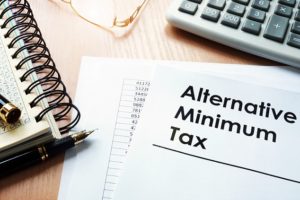Why Are Your Property Taxes So Darn High?
While the majority of people pay the most attention to the taxes they see regularly, i.e. income and sales tax, there are other taxes that cost you a lot of money that you may tend to forget about. One of those taxes that cost a lot, but that kind of goes unnoticed is property tax. In fact, depending on where you live and how much property you own, your property taxes can be huge. For some people, like residents of New Jersey for example, property taxes seem extreme.
A 2014 study by Monmouth University found that 26 percent of New Jersey residents said that they were “very likely” to move to a different state, with the most common reason being the high price of housing and property taxes – with property taxes being the main culprit. Residents of Connecticut and New York are also often on the list of highest property taxes. Why is that some locations have much higher property taxes than others?
There are several reasons that property taxes vary from state to state and city to city. Here are just a few of the main causes:
- State employees make a lot of money – if your state pays its workers well, like New Jersey does, then chances are your property taxes are higher in order to help foot that bill.
- Not Much Tourism – if your state lacks a lot of out-of-town visitors then property taxes could be higher to make up for lost revenue.
- Good schools – in order to have the best schools you have to pay for the best teachers and education services. The funds for those expenses often come from property taxes.
- Valuable property – no matter where you live, if you have a valuable home then you will almost assuredly pay more in property taxes. That’s because your property tax is based on the assessed value of your home times the local tax rate. A higher value home equals higher property taxes.
There are other possible reasons for high property taxes, but these are some of the most common. If you want to avoid outrageous property taxes, then your best bet is to simply move to a state where property taxes are lower.
Are You Prepared to Avoid the AMT Under the New Tax Law?
Are You Prepared to Avoid the AMT Under the New Tax Law? The Tax Cuts and Jobs Act (TCJA) changed a lot of things. But unfortunately, it didn’t eliminate the dreaded Alternative Minimum Tax (AMT). The TCJA did change some of the AMT rules and it reduced the odds that you will qualify for the…
Ready for Taxes After Marriage? Here’s What You Need to Know
Ready for Taxes After Marriage? Here’s What You Need to Know The 2018 tax season is officially over. Most Americans are happy to have their tax returns in the rearview mirror. After all, nobody really enjoys doing taxes. Why is that? For the most part, it’s because doing taxes is such a complicated, frustrating experience…
Are Millennials Changing How We See Leadership?
Are Millennials Changing How We See Leadership? Within just a few years from now, Millennials will actually become the largest employee demographic in the workforce. That means ready or not, Millennials are coming to an office near you. It also means they will soon be taking on more leadership roles. In fact, they have already…
Tips for Avoiding Wire Fraud in Your Next Real Estate Transaction
Tips for Avoiding Wire Fraud in Your Next Real Estate Transaction It is a buyer’s worst nightmare, and it could happen to almost anyone. The wire over a significant amount of money to an account as part of settlement on a real estate transaction. Hours or perhaps a day or two later, they realize that…




